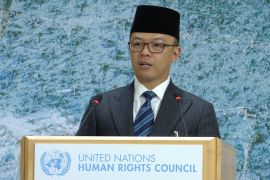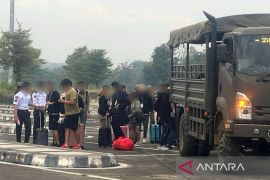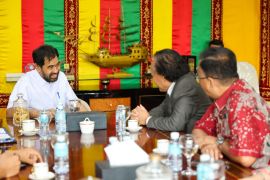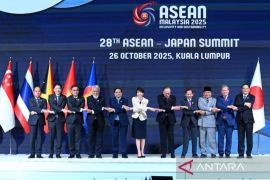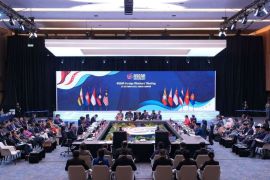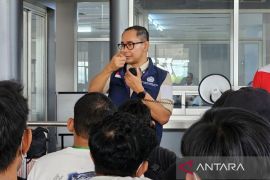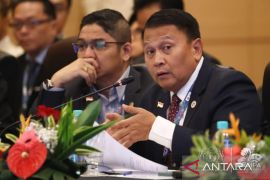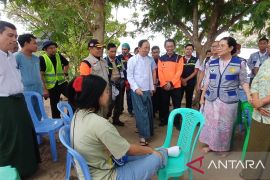In the first clear sign of friction since Suu Kyi`s party swept historic by-elections, the ruling party on Monday rejected her demand to replace the words "safeguard the constitution" with "respect the constitution" in the oath.
Despite the row, EU foreign ministers decided to suspend its sanctions during a meeting in Luxembourg in recognition of democratic reforms in Myanmar after half a century of military rule.
The suspension, which does not apply to a separate arms embargo, is expected to go into effect later this week. It will allow European companies to invest in Myanmar which has significant natural resources and neighbours China and India.
The EU move rewards a shift in Myanmar`s political environment that has seen Suu Kyi elected to parliament and a range of repressive measures lifted.
Yet, the dispute in Myanmar has marred the opening of parliament, as Suu Kyi and other members of her party refused to take their seats, denting an image of transformation.
By deciding to suspend sanctions instead of lifting them altogether, EU governments are moving cautiously in order to pressure the ruling army-backed party keep up the pace of change.
"President Thein Sein has taken important steps towards reform in Burma, and it is right for the world to respond to them," British Prime Minister David Cameron said in a statement after the EU decision.
"But those changes are not yet irreversible, which is why it is right to suspend rather than lift sanctions for good."
EU measures have targeted nearly a thousand firms and institutions with asset freezes, and visa bans have affected almost 500 people. The sanctions have also prohibited military-related technical assistance and investment bans in the mining, timber and precious metals sectors.
EU governments have been keen to capitalise on Myanmar`s economic potential and to secure a place for European businesses in the face of competition from Asian rivals.
Observers say European companies are vying for market share in a broad range of industries, from oil and gas to timber, tourism services and services such as telecommunications and banking, many of which are vastly underdeveloped following years of economic isolation due to Western sanctions.
Cameron, the first British prime minister to visit Myanmar since it won independence from Britain in 1948, was accompanied by several businesses on his trip.
The United States is also moving to ease bans on U.S. companies investing in and providing financial services to Myanmar, and will first target those sectors that could support democratic reforms in the country. (*)
Editor: Kunto Wibisono
Copyright © ANTARA 2012
